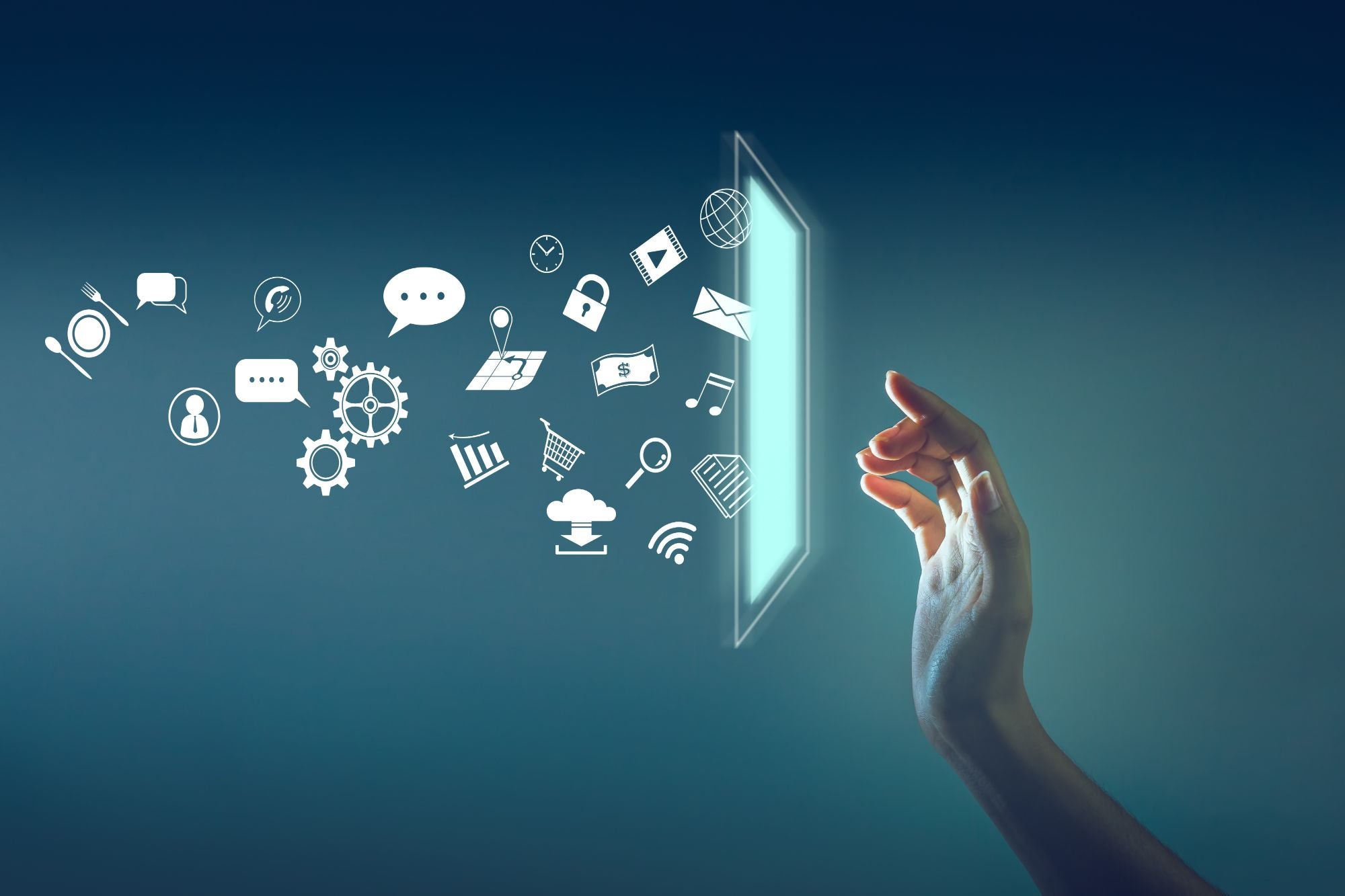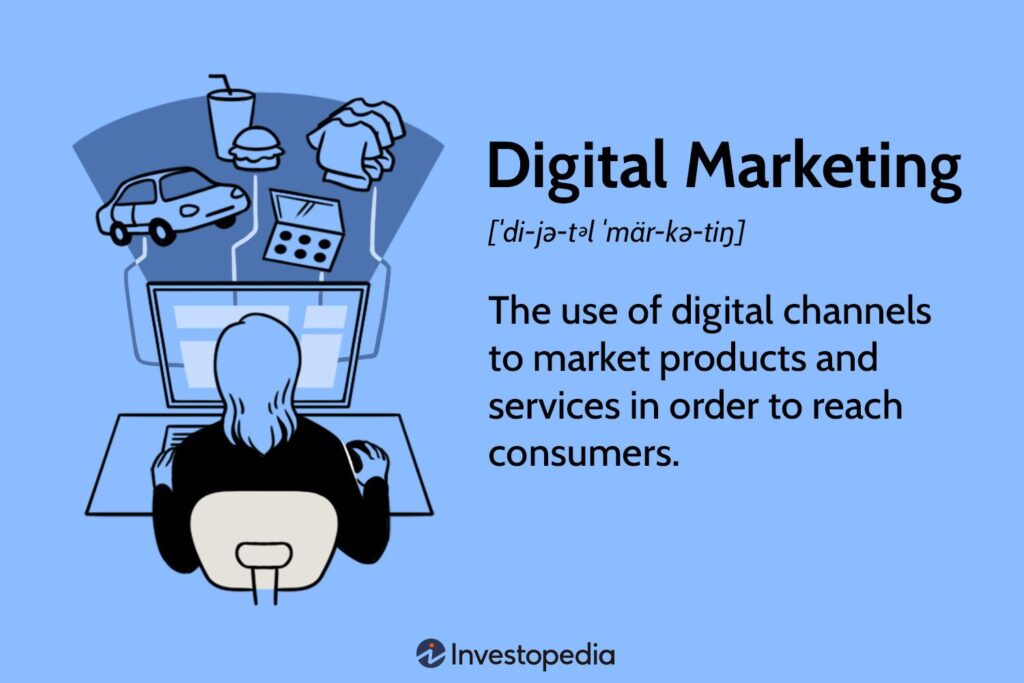The Future of Digital Marketing: What to Expect in 2025
As we rapidly approach 2025, the digital marketing landscape is poised for transformative changes. Understanding the Future of Digital Marketing can help you stay ahead of trends, seize new opportunities, and craft strategies that resonate with tomorrow’s consumers. From advanced technologies to shifting consumer behaviors, here’s a look at the trends and innovations shaping the future of digital marketing.

1. The Rise of Artificial Intelligence and Automation
Artificial Intelligence (AI) is set to revolutionize the Future of Digital Marketing. AI technologies are becoming increasingly sophisticated, enabling marketers to automate tasks, analyze data, and personalize content at scale. Expect AI-powered chatbots to handle customer service with human-like efficiency, predictive analytics to optimize campaigns in real-time, and advanced algorithms to deliver highly personalized content. Automation will streamline processes, enhance decision-making, and improve customer experiences, allowing marketers to focus on strategic initiatives.
2. The Expansion of Augmented Reality (AR) and Virtual Reality (VR)
Augmented Reality (AR) and Virtual Reality (VR) are not just buzzwords; they’re becoming integral to digital marketing. AR allows customers to interact with digital elements in their real-world environment, while VR offers immersive brand experiences. By 2025, brands will leverage AR for virtual try-ons and interactive product demos, and VR for immersive storytelling and virtual tours. These technologies will create engaging experiences that captivate audiences and enhance brand interactions.
3. Increased Emphasis on Privacy and Data Security
With growing concerns over data privacy, the Future of Digital Marketing will see a heightened focus on privacy and data security. Consumers are becoming more aware of how their data is used, and regulations are tightening around data protection. Marketers will need to adopt transparent data practices, prioritize consent, and ensure robust security measures to build trust and comply with regulations like GDPR and CCPA. Embracing privacy-first strategies will be crucial for maintaining customer confidence and loyalty.
4. Evolution of Content Marketing with Interactive and Shoppable Content
Content marketing will continue to evolve, with interactive and shoppable content taking center stage. Interactive content, such as quizzes, polls, and gamified experiences, will engage users more deeply and provide valuable insights. Shoppable content will enable seamless purchasing experiences directly from social media posts, videos, and ads, streamlining the customer journey and driving conversions. Brands that harness these innovations will create compelling experiences that resonate with audiences and drive higher engagement.
5. The Dominance of Voice Search and Conversational AI
Voice search is on the rise, driven by the increasing use of voice-activated devices like smart speakers and virtual assistants. By 2025, optimizing for voice search will be essential for maintaining visibility in search results. Conversational AI will also play a significant role, enabling more natural interactions between brands and consumers. Brands will need to focus on optimizing content for voice queries and leveraging conversational AI to enhance customer interactions and support.
6. Growth of Social Commerce and Influencer Partnerships
Social commerce is set to become a dominant force in the Future of Digital Marketing. Social media platforms will continue to evolve into integrated shopping experiences, where users can discover and purchase products without leaving the app. Influencer marketing will also grow, with brands collaborating with micro and nano-influencers to reach niche audiences and build authentic connections. Expect to see more seamless integrations between social media, e-commerce, and influencer partnerships.
7. The Emergence of Blockchain Technology
Blockchain technology is gaining traction as a tool for enhancing transparency and security in digital marketing. By 2025, blockchain could play a role in improving data integrity, combating ad fraud, and ensuring fairer transactions. Brands may use blockchain for verifying ad impressions, securing customer data, and providing more transparent and accountable marketing practices. As blockchain technology evolves, its impact on digital marketing will become increasingly significant.
8. The Importance of Hyper-Personalization
Hyper-personalization will be a key trend in the Future of Digital Marketing. Leveraging advanced data analytics and AI, brands will deliver highly personalized experiences tailored to individual preferences and behaviors. This goes beyond basic personalization to create unique interactions based on real-time data, purchase history, and browsing patterns. Hyper-personalization will drive deeper connections with customers and enhance the overall effectiveness of marketing efforts.
9. The Integration of Omnichannel Strategies
Omnichannel marketing will become increasingly important as brands strive to create cohesive and seamless customer experiences across all touchpoints. By integrating online and offline channels, brands will provide a unified experience that meets customers wherever they are. Expect to see more sophisticated omnichannel strategies that leverage data and technology to deliver consistent messaging, personalized interactions, and seamless transitions between channels.
10. Sustainability and Ethical Marketing Practices
As consumers become more conscious of environmental and social issues, sustainability and ethical marketing will gain prominence. Brands will be expected to demonstrate their commitment to social responsibility, environmental sustainability, and ethical practices. This includes transparent supply chains, eco-friendly products, and genuine corporate social responsibility initiatives. Embracing these values will not only resonate with consumers but also build long-term brand loyalty and trust.
The Future of Digital Marketing is brimming with opportunities for innovation and growth. By staying informed about these trends and adapting your strategies, you can position your brand for success in the dynamic digital landscape of 2025. From AI advancements and AR/VR experiences to privacy considerations and sustainability, the future holds exciting possibilities for those ready to embrace the changes and lead the way.


